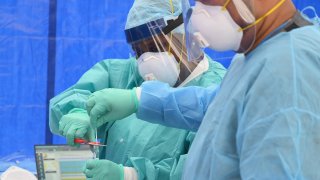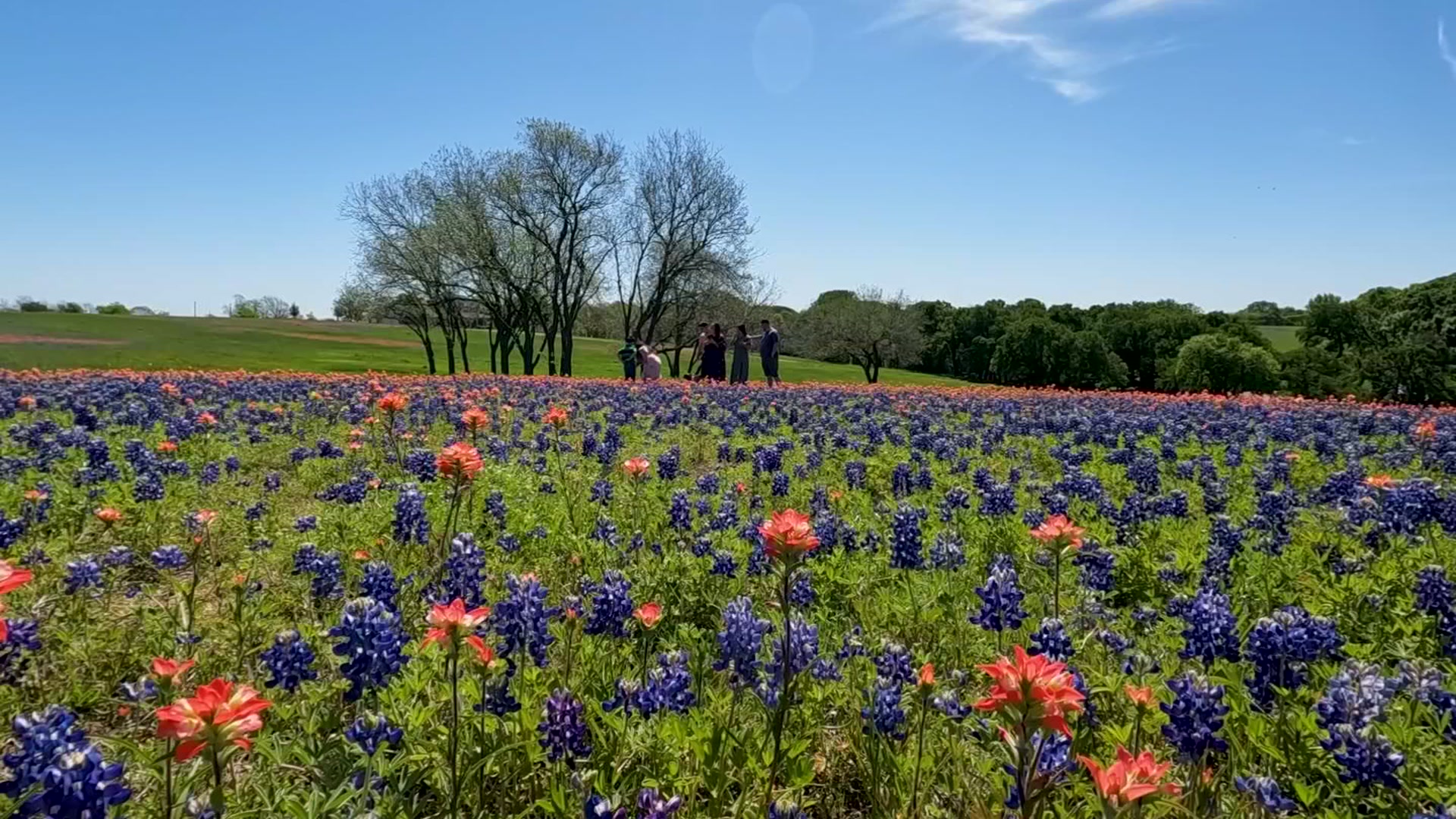
Texas will begin widespread coronavirus testing in state prisons where at least 30 people have died, officials announced Tuesday, and Houston will furlough about 3,000 workers as the economic shut down and unsteady oil prices wallops the nation’s fourth-largest city.
Republican Gov. Greg Abbott also said he tested negative for the virus after his visit last week to the White House came on the same day that a valet to President Donald Trump tested positive.
Here’s the latest in Texas:
More Tests Coming to Prisons
The Texas Department of Criminal Justice announced that tens of thousands of COVID-19 tests are on the way to the state’s prisons, where inmates have tested positive at a dramatically higher rate than the rest of Texas.
The tests are designed to be self-administered and a dozen “strike teams” are receiving training this week, agency spokesman Jeremy Desel said. It was the second announcement of widespread testing in Texas in as many days: Abbott on Monday ordered coronavius testing for every nursing home resident and staff member in the state.
More than 1,700 prison inmates have tested positive, according to the agency. The sick has included include 10 inmates at the Pack Unit near Houston, where sanitary and health conditions are the subject of a federal class action lawsuit.
Texas News
News from around the state of Texas.
'Unstable Times' in Houston
Houston Mayor Sylvester Turner said a city budget deficit of $169 million that’s been exacerbated by the coronavirus pandemic will force the city to furlough around 3,000 workers and empty its rainy day fund, and warned that could be problematic with hurricane season starting June 1
Turner said Houston is expected to lose about $107 million in sales tax revenue this year and the same amount in the upcoming fiscal year, which begins in July. Houston is also being hit hard by the dramatic drop in oil prices due to plummeting demand from worldwide virus-related lockdowns.
“I don’t think there’s any question with the advent of COVID-19, that these are some unstable times economically for the city of Houston,” Turner said.
To close the budget gap, about 3,000 city workers will have to be furloughed for a maximum of 10 days within the upcoming fiscal year, Turner said. The city has more than 20,000 workers. Police officers, firefighters and sanitation employees will not be furloughed.
Turner said the city will also have to empty its rainy day fund, which typically has about $20 million for emergency spending. This will put the city in a “precarious financial state” as officials won’t have the fund to help Houston respond if a hurricane hits, the mayor said.
El Paso Asks to Pause Reopenings
Leaders in El Paso are asking Abbott to delay more reopenings in their community amid worries over rising caseloads.
El Paso County Judge Ricardo Samaniego sent a letter Monday asking the governor to keep current restrictions in place around El Paso until numbers improve. Gyms have permission to reopen in Texas starting Monday, and Abbott could also allow restaurants to increase capacity. A spokesman for Abbott did not immediately return a message for comment.
El Paso’s cases have climbed more than 60% over the past two weeks.
Abbott Tests Negative
Abbott told Wichita Falls television station KAUZ that he tested negative for the virus Monday. He had visited the White on Thursday, the same day a member of the military serving as one of Trump’s valets tested positive.
Texas has more than 41,000 cases and at least 1,100 deaths related to the virus. The true numbers are likely higher because many people have not been tested and studies suggest people can be infected and not feel sick.
For most people, the coronavirus causes mild or moderate symptoms, such as fever and cough that clear up in two to three weeks. For some, especially older adults and people with existing health problems, it can cause more severe illness, including pneumonia.



